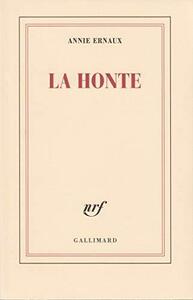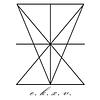You need to sign in or sign up before continuing.
Take a photo of a barcode or cover
Sicuramente non il mio preferito di Annie Arnaux ma comunque un'altra lettura profonda come solo lei ci sa regalare. Negli anni '90 l'autrice scava nella memoria nella sua infanzia, l'ambiente di paese cattolico e l'educazione bigotta di una famiglia piccolo borghese. Il racconto è intimo ma allo stesso tempo universale nel perfetto stile dell'Ernaux. Se pur mi ha ricordato l'ambiente descritto dai miei nonni, ci ho ritrovato molto anche nella mia infanzia e del piccolo ambiente rurale/provinciale dove gli occhi di Dio e dei paesani sono sempre puntati addosso con una presunzione di vergogna che penetra nella pelle e nella mente...ci vergogniamo di essere troppo intelligenti o troppo ignoranti, di essere troppo religiosi o troppo poco, di essere troppo poveri o troppo ricchi...cercando quel senso di ignavia che rimane addosso anche da adulti. La descrizione di questo sentimento è penetrante. I dettagli sono pochi proprio perché la memoria dell'infanzia è frammentaria. A mio avviso manca una "conclusione" anche come riflessione e il libro mi pare troncato di punto in bianco. Per questo do 3 stelle.
Me gustaría haber conectado un poco mas pero aún así Annie nunca me decepciona.
emotional
informative
reflective
fast-paced
dark
emotional
informative
reflective
sad
tense
medium-paced
reflective
fast-paced
reflective
slow-paced
This short auto-fictional account by Nobel Prize winner Annie Ernaux relates the shame she felt stemming from her father's attempt to kill her mother one summer day, when the narrator was 12 years old in 1952. Her mother nagged, her father snapped, violence ensued, and then it was over. The impact was long-lasting. The narrator's shame took other forms as well, arising from noticing differences with other people such as their socio-economic status and speech. It's the sort of things adolescents become aware of and make them cringe.
The book is interesting from its immersion into village life in the early 1950s, including ongoing reconstruction from World War II damage and restrictive norms of behavior, but equally as we see how this environment shapes the narrator. We don't know yet how this life and shame will impact the adult.
The book is interesting from its immersion into village life in the early 1950s, including ongoing reconstruction from World War II damage and restrictive norms of behavior, but equally as we see how this environment shapes the narrator. We don't know yet how this life and shame will impact the adult.
dark
emotional
reflective
sad
fast-paced
I loved this story. I chose to read it because of Annie Ernaux story behind it, and it's just beautifully written.
informative
sad
fast-paced







